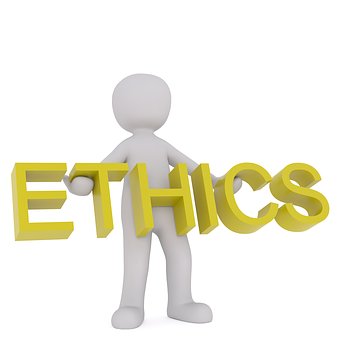 Corporations and not-for-profit organizations are under greater scrutiny than ever and PR crises are more common. Emphasis on both personal and corporate ethics creates trust, strengthens corporate image and avoids PR crises that may seriously undermine the organization. A corporate culture grounded in uncompromising ethical standards and practices enhances corporate reputation and promotes growth.
Corporations and not-for-profit organizations are under greater scrutiny than ever and PR crises are more common. Emphasis on both personal and corporate ethics creates trust, strengthens corporate image and avoids PR crises that may seriously undermine the organization. A corporate culture grounded in uncompromising ethical standards and practices enhances corporate reputation and promotes growth.
Employees and potential hires place a greater priority on company ethics. According to a Bentley University study, 86 percent of millennials consider working for a business that conducts itself ethically and responsibly one of their top priorities. Most millennials might take a considerable pay cut to work for an ethical, socially responsible business.
Those potential hires can easily obtain a company’s history, public messages and current staff members through simple Google searches. “One scandal or breach of ethics will stick for potentially years, and conversely, any efforts made to conduct business ethically will be more apparent and publicly recognized,” writes Forbes contributor Larry Alton. In addition to fraud and other financial crimes, ethical practices cover diversity and inclusion, exploitation of local populations and developing countries, and donations to charitable organization.
Company Policies Drive Ethical Staff Behavior
Although the PRSA has a code of ethics, it’s still important for PR firms to create their own code of ethics, argues John Hoffmann, marketing and communication leader for Payix Inc. in an article for the PRSA.
A study published in the Journal of Business Ethics revealed that PR professionals at firms with ethical policies were significantly more likely to engage in ethical practices. Ethical guidelines help everyone on the team, but are particularly important for younger employees, according to the study. Because they often the lack training and work experiences of their more senior colleagues, younger staffers are more likely to engage in unethical practices, the study said.
For another article in that journal, researchers reviewed existing codes at more than 1,500 PR agencies across the United States. Values most frequently emphasized were “respect to clients,” “service,” “strategy” and “results.” None of the codes included specific sanctions, although most PR scholars recommend including an enforcement mechanism in company policies.
An ideal code of ethics, researchers state, is:
- specific enough to guide behaviors,
- relevant to the industry,
- communicated to both employees and external stakeholders,
- revised on a regular basis and
- enforced.
“Those guidelines apply to many of your organization’s rules and regulations, so create a checklist to help you avoid overcomplicating or under-communicating your ethics code,” Hoffman urges.
The Corporate Culture Drives Behavior
Ethical behavior requires more than a policy, says Ron Carucci, co-founder and managing partner at Navalent. Even if a company has a firm ethics policy, its internal culture can push employees to criminal behavior and other types of misconduct, Carucci states in a Harvard Business Journal article.
Carucci cites five ways a company’s culture can cause employees to commit misdeeds:
Fear of speaking up. A culture in which people can freely speak up helps ensure they don’t collude with or incite misconduct.
Pressure to reach unrealistic goals. Employees cut corners to reach goals or lie about their performance. Wells Fargo employees felt pressure to open fraudulent financial accounts to meet performance goals.
A sense of unfairness. Large financial awards to executives combined with scant resources and compensation for lower level employees can create a sense of injustice that motivates workers to sabotage the organization.
Lack of good examples. Leaders set examples for employees. Under greater scrutiny, leaders are held to a higher standard. They must consider how others may misinterpret their actions. Even small white lies can seem to condone unethical behavior.
Ethics courses in colleges, graduate schools, and corporate seminars for employees can help establish the principles and practices of ethics and good behavior in business. In corporate seminars, the CEO should appear to emphasize the need and expectation for ethical behavior in all business dealings.
In an age of corporate mistrust, creating ethical workplaces takes more than compliance programs, Carucci concludes. It requires ongoing intensified effort to make the highest ethical standards the norm and ruthless intolerance of anything less.
Bottom Line: Ethical corporate behavior creates trust, a core element of any business relationship. High ethical standards help recruit top talent, retain loyal customers and stimulate growth. Most companies that understand the value of ethics implement a company ethics policy. However, preventing ethical misconduct by employees requires more than issuing guidelines or a compliance document. Corporate leaders must set expectations. Most importantly, corporate leaders must act ethically in all circumstances.
William J. Comcowich founded and served as CEO of CyberAlert LLC, the predecessor of Glean.info. He is currently serving as Interim CEO and member of the Board of Directors. Glean.info provides customized media monitoring, media measurement and analytics solutions across all types of traditional and social media.




